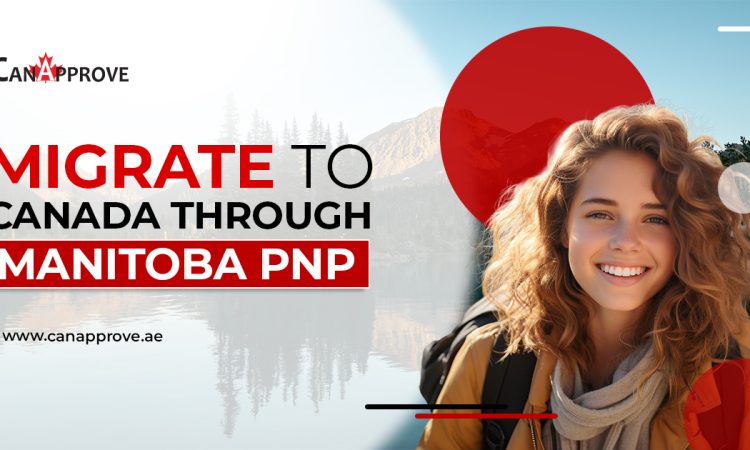Alberta, Canada’s wild west!
This province isn’t just about beautiful mountain ranges and epic dinosaur digs. With a growing need to broaden its economy and address an ageing population, immigration is playing a critical role in the province’s future. Alberta is a dynamic economic powerhouse which is strategically influencing immigration to fuel its future.
Buckle up as we explore exclusive insights from Alberta’s Immigration Strategy and look into how the province is attracting skilled newcomers to unlock explosive economic growth insights !
Understanding Alberta’s Role in Immigrant Selection
Canada’s immigration system is a federal-provincial partnership, granting provinces like Alberta the power to select immigrants who align with their specific labour market needs. This allows Alberta to target skilled professionals who can contribute directly to the province’s economic development.
A new immigration strategy was updated by Alberta in 2022, called Alberta Advantage Immigration Strategy, which centers on a core vision to:
“Achieve greater economic opportunity for all Albertans by attracting newcomers to Alberta in response to provincial labour market needs, and supporting newcomers in reaching their full potential in our province.”
As part of the strategy, Alberta has rebranded the Alberta Immigrant Nominee Program (AINP) to the Alberta Advantage Immigration Program ( AAIP). This initiative aims to enhance Alberta’s appeal as a desirable destination for individuals seeking employment and a nurturing environment to raise their families.
Aligned with Alberta’s Recovery Plan, the Alberta Advantage Immigration Strategy encourages increased opportunities for individuals to migrate to Alberta, establish businesses, and contribute to community enrichment.
Insights into Alberta Advantage Immigration Strategy
The Alberta Advantage Immigration Strategy outlines the province’s vision for attracting and integrating skilled newcomers. This strategy prioritizes:
- Alignment with Labor Market Needs: The AAIP prioritizes occupations facing skill shortages, supporting immigrants who can contribute to the workforce.
- Supporting Newcomer Integration: The strategy goes beyond just selection. It includes the Fairness for Newcomers Action Plan, which offers settlement services and programs to help newcomers integrate and succeed in Alberta.
- Economic Diversification: By attracting skilled professionals in various sectors beyond oil and gas, Alberta aims to specialise its economy and build flexibility for the future.
Overview of Alberta’s Provincial Nomination Program
Alberta’s Advantage Immigration Program (AAIP), formerly known as the AINP, is the provincial government’s key tool for selecting immigrants. The AAIP offers various streams, including the Alberta Opportunity Stream for existing temporary foreign workers and the Alberta Express Entry Stream for skilled professionals already in the federal Express Entry pool. These streams make sure the selected immigrants have the skills and experience critical for Alberta’s economic growth.
Federal Government’s Immigration Targets
The federal government sets annual immigration targets for Canada, including targets for each province. Alberta works closely with the federal government to make sure these targets reflect the province’s specific labour market needs. This cooperative approach ensures a steady flow of skilled immigrants to support Alberta’s economic ambitions.
Economic Impact of Immigration in Canada
Studies have consistently shown the positive economic impact of immigration in Canada. Immigrants contribute to economic growth through:
- Increased Workforce: Newcomers fill labour shortages, allowing businesses to expand and create new jobs.
- Entrepreneurship: Many immigrants come with entrepreneurial skills and are more likely to start businesses, further boosting the economy.
- Tax Revenue: When immigrants work and earn income, they contribute to tax revenue used to fund essential public services.
Challenges and Opportunities for Economic Growth
While immigration presents significant opportunities, there are also challenges to consider:
- Ensuring Smooth Integration: Strong settlement assistance and language training programs are necessary for successfully integrating newcomers into the workforce.
- Addressing Housing Shortages: A growing population can struggle with housing availability. Investment in new housing infrastructure is crucial to accommodating newcomers.
- Influencing Immigrant Skills: Recognizing foreign credentials and verifying immigrants can utilize their full skillsets is very essential to maximize economic benefits.
Importance of Labour Market Needs in Immigration Strategy
By aligning its immigration strategy with labour market needs, Alberta makes sure that selected immigrants have the skills and experience in-demand industries. This targeted approach allows for quicker integration into the workforce and a faster contribution to economic growth.
Observations on Alberta’s Immigration Program Success
Alberta has a well-established immigration system with a proven track record of attracting skilled newcomers. The AAIP’s various streams serve diverse needs, allowing selection of entrepreneurs, skilled workers, and international graduates. This comprehensive approach ensures a steady stream of talent to fuel economic growth.
Recommendations for Strengthening Canada’s Immigration System
To further elevate the economic benefits of immigration, some recommendations include:
- Streamlining the Application Process: Reducing processing times and simplifying application procedures can encourage more skilled immigrants to choose Canada.
- Boosting Recognition of Foreign Credentials: Refining the process for foreign credential recognition can allow immigrants to utilize their full skillsets more quickly.
- Investing in Settlement Services: Continued investment in settlement services makes a certain smooth blend and helps newcomers maximize their economic potential.
Conclusion
By adopting a strategic approach to immigration, Alberta is actively shaping its economic future. The AAIP, coupled with the Alberta Advantage Immigration Strategy, demonstrates the province’s commitment to attracting skilled immigrants to address labour market needs and fuel economic growth.
With CanApprove as your trusted guide, navigating the immigration process becomes not just achievable but an exciting journey towards realizing your dreams in Alberta, Canada’s heartland of opportunity.
Snatch the advantage today and unlock a world of possibilities with Alberta’s welcoming hug and CanApprove’s expert assistance.









